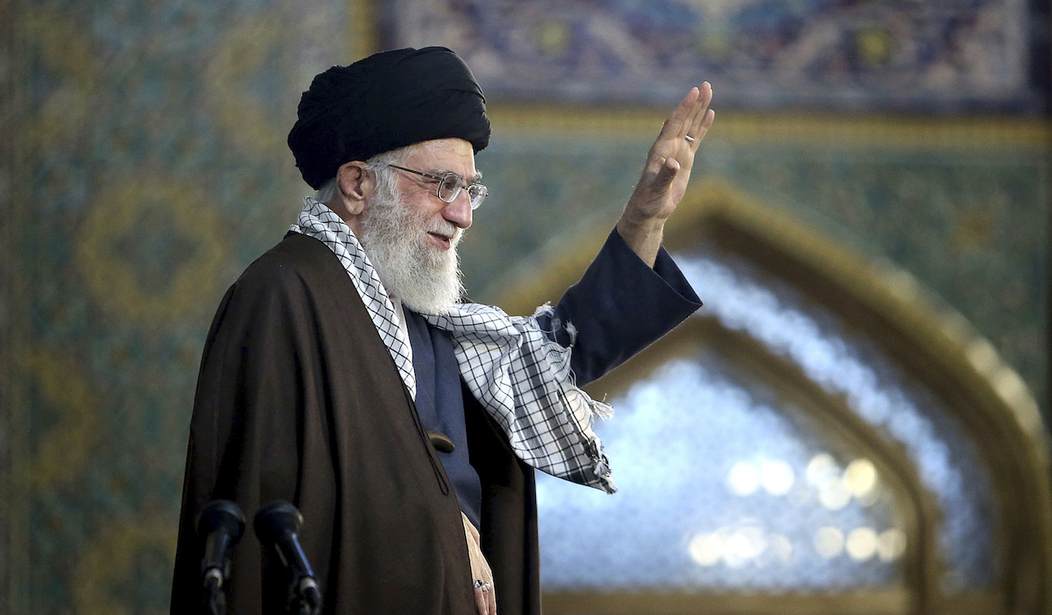The Iranian regime's attempts to rewrite its history are deeply troubling, most recently manifested in their efforts to empty and sell the Gohardasht prison in the city of Karaj, west of Tehran. This prison was the site where thousands of political prisoners were sentenced to death by a four-member ‘Death Commission,’ which includes the current president, Ebrahim Raisi. This effort, undoubtedly intended to erase any trace of the 1988 massacre, exposes a critical question that the West must confront: Why does the approach toward Iran remain fraught with inconsistencies?
The 1988 massacre remains one of the darkest chapters in Iran's history. However, it's not just about one massacre. It's about a regime's unbroken history of attempts to suppress, intimidate, and erase the memory of those who dare to dissent. The primary target has long been the People’s Mujahedin Organization of Iran (PMOI/MEK) and the Iranian opposition leader Maryam Rajavi.
Rajavi, who leads the National Council of Resistance of Iran (NCRI), of which PMOI is a member, represents an alternative vision for Iran—one that is democratic and tolerant. Her vision strikes at the core of the mullahs' fears, embodying a modern, democratic, and just society. But instead of engaging in a dialogue of ideas, the Iranian regime has stooped to the lowest forms of psychological warfare, even influencing Western opinion against the NCRI.
The NCRI represents what the regime fears most: a vision of a democratic, pluralistic Iran that respects human rights and seeks peaceful coexistence with its neighbors. It's easy to see why the Iranian regime sees Mrs. Rajavi as its nemesis. In her, they see a challenge to their own intolerant, fanatical ideologies. They see an Iran that could be but isn’t.
The regime's psychological warfare against the NCRI is relentless. Yet, when it comes to the West's reaction to this ideological struggle, the inconsistencies are glaring. The judicial, legislative, and executive branches in the Western world have varied significantly in their approach to the NCRI.
Recommended
Why is this the case? Well, it’s because the Iranian regime has very powerful levers to influence, blackmail, and change the will of governments. First, they have the capacity to organize terrorist actions, terrifying governments that Iran might perpetrate a terrorist attack on their soil.
Second, they engage in hostage-taking. Every time a hostage is threatened with life imprisonment or execution, governments immediately bend to the regime's demands, often exchanging hostages or paying enormous ransoms.
Third, economic interests come into play. Major European companies operate in Iran, and governments seek to protect these economic ties. In 2002, Spain, during its presidency of the European Union, saw Iran negotiate a lucrative trade contract with Spanish companies, precisely to earn European support for blacklisting the PMOI.
Fourth, there's the nuclear deal. The Iranian regime threatens Western governments with resuming their nuclear program unless actions against the NCRI cease. The message is clear: stop the NCRI or face a nuclear Iran.
Lastly, bribery forms a critical part of this manipulative strategy. The regime bribes politicians, journalists, and government officials. This has been witnessed even within the European Parliament.
Courts have almost always ruled in favor of the PMOI. The British court once termed the blacklisting of the PMOI as "perverse," exemplifying the judiciary's unbiased and principled stand.
Parliaments have been generally supportive as well. Committees advocating for a democratic Iran exist in many European and national parliaments. These legislative bodies often welcome Mrs. Rajavi and express their solidarity with her vision for Iran.
However, the executive branches often seem willing to bend to the will of the Iranian regime, which excels in these dark arts of influence and manipulation.
So, what’s the crux of the matter? Can Western leaders truly trust a regime that resorts to such tactics, especially during nuclear talks? It is a paradox that Western governments question the credibility of the NCRI while overlooking the deceptive practices of the Iranian regime.
Ignoring the larger narrative behind events like the attempted demolition of Gohardasht prison can have serious consequences. The Iranian people are increasingly disillusioned with their government and are demanding the truth about atrocities like the 1988 massacre. They question the regime and their skepticism is reaching a tipping point.
Human rights organizations must step up. Their mission is to end impunity and advocate for justice. The world needs to hold the Iranian regime accountable for its atrocities, not just against the PMOI, but against humanity.
This brings us to a critical juncture: Silence is not an option. It serves only to embolden a regime that interprets inaction as acquiescence. We need more than just condemnations; we need tangible actions. We must demand that perpetrators of crimes against humanity be brought before international courts.
Western policymakers need to revisit their stand on Iran critically. There is something fundamentally flawed in the dichotomy between the judiciary's and the legislature's understanding of the PMOI, and the executive's apprehensive policy towards it. This disparity impacts not just Iran and its future but also the broader stability of the Middle East and, indeed, the ethical grounding of international politics.
Suppose the West truly believes in the values it espouses. In that case, it's time to take a unified, ethical stand against the oppressive Iranian regime and support those who stand for a freer, more democratic Iran. It's time to stop the inconsistencies, face the uncomfortable truths and act with the moral integrity the world so desperately needs.
























Join the conversation as a VIP Member